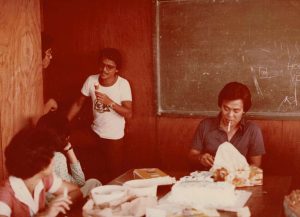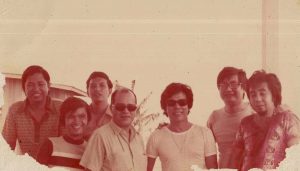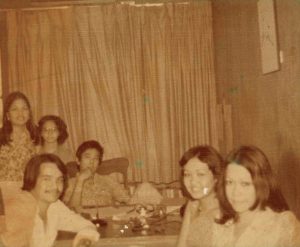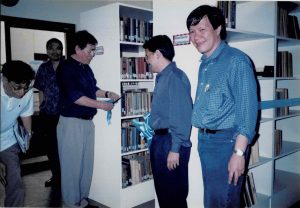Established in 1910, the Philosophy undergraduate program of the University of the Philippines began under a joint Department of Philosophy and Psychology. Throughout the American occupation, UP continuously produced bureaucrats and intellectuals.
The post-World War II era saw the modernization and rapid development of the University. The main campus was transferred from Manila to Diliman in Quezon City. It was during this time that an independent Department of Philosophy was born.
Finishing his studies under the tutelage of the logical positivist Rudolf Carnap, Dr. Ricardo Pascual [below] led the newly-independent Department into the forefront of Anglo-American analytic philosophy. In the succeeding decades, the MA Philosophy program of the Department was established, bolstering the Filipino’s capacity for research in traditional analytic problems.
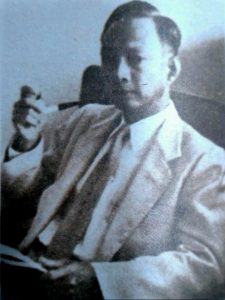
The dawn of the ’90s saw distinct challenges in the local education sector. To heed this challenge, the Department pioneered the ground-breaking pedagogical innovation of Philosophy for Children (P4C) in the Philippines. This led to the organization of teachers’ trainings on P4C as a tool for teaching critical thinking.
The 2000s was characterized by more active engagements in civil society with the introduction of Bioethics in the country. This was the very first joint program of two UP constituent universities. Together with the College of Medicine of UP Manila, the Department established its MS in Bioethics and Diploma in Bioethics. These two programs have produced countless bioethicists now serving in the medical field.
Today, the Department continues to offer cutting-edge researches and trainings on varied topics ranging from the traditional to the applied: such as Filipino philosophy, Feminism, Environmental Ethics, and others. These rich discourses steered the establishment of the Department’s PhD in Philosophy program in 2008. The PhD program aims to educate the next generation of leaders in the local philosophical scene.
With its roots entrenched in the rigors of analytic philosophy, the UP Department of Philosophy continues to provide critical frameworks in making sense of this ever-changing world.

